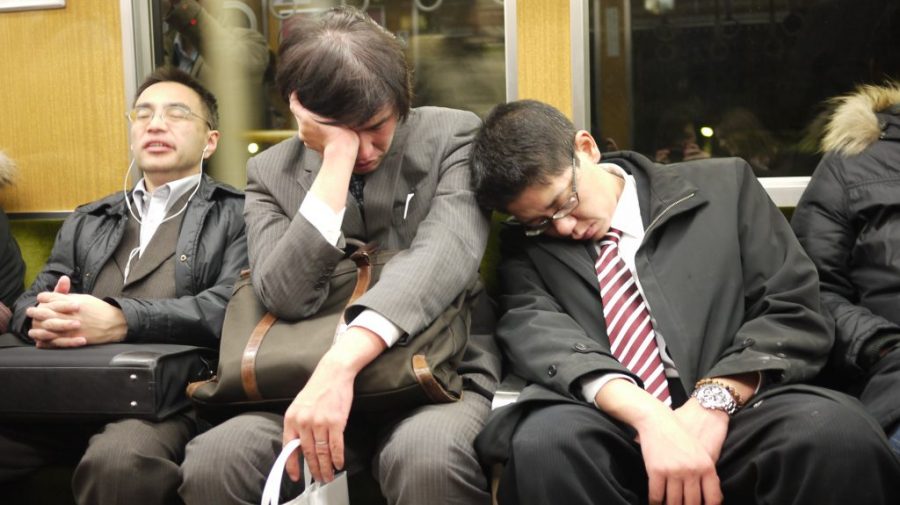A Japanese woman died July 2013 from overwork, the country’s public broadcaster NHK and former employee of the political reporter made public this week. Miwa Sado, 31, only took two days off and logged 159 hours of overtime while she covered the Tokyo metropolitan assembly elections and national upper house elections in June and July. She suffered a heart attack and passed away three days after the upper house elections.
Sado worked nearly twice the hour’s considered standard for Americans.
Masahiko Yamauchi, a senior official in NHK’s news department, admitted that the woman’s death reflected a problem that affected the entire labor system as much as it changed the media organization, The Guardian reported.

The official added that it was necessary to study how elections are covered because of the threat overwork poses to media workers. A labor standards office in Tokyo attributed the political reporter’s death to karoshi, the Japanese word for exhaustion but the broadcaster had not made the cause of the death public until now out of respect for Sado’s family.
“Even today, four years on, we cannot accept our daughter’s death as a reality. We hope that the sorrow of a bereaved family will not be wasted,” Sado’s parents said in a statement issued through NHK, according to The Guardian.
Japanese workers tend to spend too many hours at work because they feel the need to demonstrate their dedication to employers. Sado’s death adds to the extensive list that piles pressure on authorities to establish limits and prevent overwork in the country.
Research has revealed that Japanese employees work significantly more extended hours than other developed nations such as the United States and Britain. In 2015. They used an average of 8.8 days of their annual leave compared with 100 percent in Hong Kong and 78 percent in Singapore.
A 2014 sleep study’s poll found that Japan’s workforce sleeps less than any other country. On average, workers in the Asian region sleep six hours and 22 minutes each work night.
Work-related stress has led to more than 2,000 suicides in the year to March 2016. Many other workers died from heart failure caused by overwork, which continues to be a hallmark of Japan’s work culture. In 2016, an official government document revealed that 20 percent of Japanese workers were at risk of death from overwork.
A poll conducted between December 2015 and January 2016 showed that more than 20 percent of companies reported some of their employees logged more than 80 hours of overtime each month. Such levels pose a serious threat to health and well-being.

Is dedication to work worth dying for?
Labor standards officials ruled out last year that a 24-year-old employee at Dentsu advertising agency who committed suicide in April 2015 had taken that decision due to stress caused by long working hours, according to a report by the BBC.
In the months before she killed herself, Matsuri Takahashi had been working more than 100 hour’s overtime. She posted on social media “I want to die” weeks before she died. A separate post read: “I’m physically and mentally shattered.”
Her death triggered a national debate over Japan’s work culture. Prime Minister Shinzō Abe acknowledged that employers in Japan often expected an extreme dedication to work even if it didn’t actually improve productivity.
The government proposes to establish a limit of 100 hours of overwork per month, but critics claim that amount is still harmful.
Source: The Guardian
